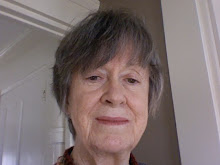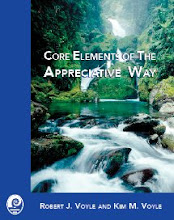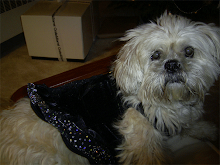Sermon for Sunday, July 16
St. Andrew's and St. Thomas'
 |
These four images are among the first observations made by the new Wide Field Camera 3 aboard the upgraded NASA Hubble Space Telescope. The image at top left shows NGC 6302, a butterfly-shaped nebula surrounding a dying star. At top right is a picture of a clash among members of a galactic grouping called Stephan's Quintet. The image at bottom left gives viewers a panoramic portrait of a colorful assortment of 100,000 stars residing in the crowded core of Omega Centauri, a giant globular cluster. At bottom right, an eerie pillar of star birth in the Carina Nebula rises from a sea of greenish-colored clouds. |
My summer reading includes Journey of the Universe, by Brian Thomas Swimme and Mary Evelyn Tucker. I was struck in reading it the parallels between the story of the universe and the story of ourselves as created beings. In fact, that is one of the points of the book. and maybe as the summer goes along those parallels might strike you as well.
Since the Pentecost season has begun we’ve been hearing some of the foundational stories of our faith, especially if you’ve been reading the Genesis option for the Old Testament. If this is so, you have heard the story of the near sacrifice of Isaac by Abraham. The story of how Isaac married Rebecca. The story of the birth of Esau and Jacob and how Jacob stole Esau’s birthright. Now we have Jacob at the beginning of his adulthood and his encounter with God in a dream. Stories are important, they help ground us and remind us of who we are.
So I think if we look at the story (or the journey) of the Universe and use it as a springing off point for the stories of St. Andrew’s and St. Thomas’, we might be able to find ideas and ways that will help us in what the authors call “The challenge of creating a shared future.”
At the start of the book the authors describe the beginnings of the universe, with the forces of expansion (from the big bang) and forces of attraction (gravity), reminding us that the universe is "shaped by these two opposing and creative dynamics" and that we who are alive are also shaped by processes of expansion and contraction such as breathing or the beating of our hearts. To quote them: "At the very least we can say that because of the great exhalation at the start of the universe, life and humanity have emerged and are breathing within it now."
After the initial "bang", or exhalation, particles began to collide and interact; sometimes bonding, sometimes separating. This bonding, which resulted in the formation of increasingly complex communities, started with elementary particles and bonding seems to be the way of the universe. In order for bonding to occur, the particles have to give up part of their mass and release it as energy. "Even from the first moments, our universe moved toward creating relationships.....This bonding is at the heart of matter."
Forming a complex community is what we will be about over the next year. I’ve been pondering what it would mean in terms of giving up some mass, but more than that, what kind of energy will be released that will benefit both churches and the communities in which you exist.
And then there is the relationship part of bonding, as well. Did God create the whole universe, not just us, in God's image? If bonding is at the heart of matter, then bonding or relationship has a lot to do with God. I would like to think that relationships or bonding are as critical to the nature of God as to the nature of the universe God created.
This bonding and separation are not without cost. In Romans we hear Paul saying: “We know that the whole creation has been groaning in labor pains until now; and not only the creation, but we ourselves, who have the first fruits of the Spirit, groan inwardly while we wait for adoption, the redemption of our bodies. For in hope we were saved. Now hope that is seen is not hope. For who hopes for what is seen? But if we hope for what we do not see, we wait for it with patience. Patience doesn’t seem to be a characteristic that is much in use in our culture. But look at the patience of a God who waits for his universe to unfold and display its glory. We tend to want things now. We want to know what the outcome will be and go for it. Yes, we are looking to be set free from bondage to decay, but the more we learn about the creativity involved in our universe, the more we need to look at the creativity within ourselves and to recognized the need for relationship to help that creativity along.
In today’s story, the promise that God made to Abraham is repeated to Isaac in a dream: "I am the LORD, the God of Abraham your father and the God of Isaac; the land on which you lie I will give to you and to your offspring; and your offspring shall be like the dust of the earth, and you shall spread abroad to the west and to the east and to the north and to the south; and all the families of the earth shall be blessed in you and in your offspring.” And we are blessed as part of God’s family as inheritors of the tradition starting with Abraham, Isaac and Jacob and a long-long line of faithful followers of that tradition of which Jesus was a part and so are we.
In the morning we are told that Jacob was afraid: “and said, ‘How awesome is this place! This is none other than the house of God, and this is the gate of heaven.’ With the vision of angels going up and down a ladder I guess we would all think of that place was the gate of heaven. But what of our new perspective of the universe. We can say of the universe God created too, “How awesome is this place.” This is a universe that has created stars and galaxies and a world that can support we human beings. It is an awesome place with fiery deaths and exploding life continuing to be created. It is an even more awesome place that Jacob could have ever imagined. He, like you and me, was made of stardust. Imagine that!
So far the images used to describe the universe were a breathing lung, an expanding heart, and a system that becomes increasingly complex. The authors give us a fourth image: that of a developing seed. The process is complex, but orderly: first roots, then leaves. The universe started out focusing on building nuclei, then it stopped and other processes began. “The astonishing fact is that if the universe had continued building nuclei all the way up to iron, for example, iron nuclei would have predominated for all time.” But what happened instead was when all the light nuclei were formed the conditions for building the nuclei changed. And this stopping and changing happened again and again over the fourteen billion years it took to get to us. As with seeds developing one process stopped so something new could take over. Something that would eventually become living, breathing creatures.
In Matthew’s gospel we hear: Let both of them (wheat and weeds) grow together until the harvest; and at harvest time I will tell the reapers, Collect the weeds first and bind them in bundles to be burned, but gather the wheat into my barn.' Now Matthew goes to great length to explain what this means, but we could also interpret it to include not just people, but what it is a church or a community does. Every place has weeds and wheat and telling the difference isn’t always easy, but when the time for harvest comes it will become clear. There are dead ends in God’s creation.
I think what is important for the coming year is summarized in this quote: “We can begin to contemplate an idea that is remarkable: perhaps the nature of the universe as a whole is shaped by the creativity of its parts.” I think the one thing a parish needs, especially in transition times, is creativity and I pray that together we will be able to contemplate and tap into the creativity that is already in these two places. Maybe this is one of those stopping points where something new begins to happen. Where with Jacob we can say a year from now: “How awesome is this place.”









